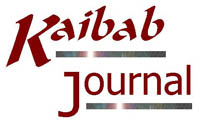|
|
Taxes,
morality and ethics: Sounding Board Editorial #13 (April 27, 2008) Dennis Foster |
 |
|
|
||
| When the issue of sales taxes comes up in the local arena, I am constantly amazed at how easy it is for supporters to make the argument that we should support such a tax, or its expansion, in part because visitors pay a sizable chunk of these taxes. Well, it happens everywhere, but that doesn't make it right. How often have you traveled somewhere and, upon inspecting your hotel room bill seen a line item called "room tax?" It is the same principle - tax people who are just passing through and make them help to pay for local services which they aren't going to use! It is the ultimate in taxation without representation. And, yet, it enjoys such widespread political support. I have never heard anyone raise the issue of the morality of such a taxing scheme. While we are constantly barraged with issues of ethical behavior, how can such a lapse go so totally unnoticed? The ballot measure to raise taxes to help fund the bus system has been touted as a sort of kinder and gentler tax since it is a sales tax and we get a lot of visitors in Flagstaff, who really are never going to use the bus system. So, it's like free money. I decided to address the issue with this editorial. This comment ran on April 27. | ||
|
|
||
|
Taxes
represent the seizure of your wealth and income, which is used
to fund various governmental services. While there is a basic
immorality to forcing our compliance, it is ethical to have a
basic structure of government in order to protect individual
freedoms. What isn't ethical is to expand and grow government,
extending the reach of its coercive power, just because some
argue that it "makes sense." Most people believe
that the ends don't justify the means. So, for example, even
if you believe that particular residents should have access to
a bus system, it doesn't justify forcing taxpayers to pay for
this system. It is the hallmark of the lazy social activist
that individual freedoms can be so easily trumped by
government force. |
||
|
|
||
|
My comment about "making sense" was a retort to a letter published in the paper criticizing my earlier stance on the bus system. The author of that letter, Marcus Ford, and I have tangled in print over the years and will likely continue to do so. |
||
|
|
||
